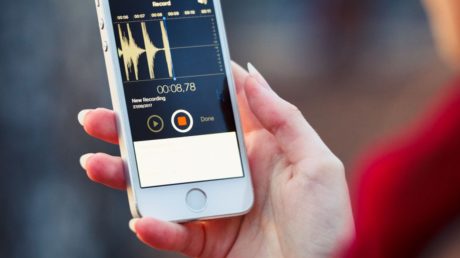In December 2022, the Family Justice Council (“FJC”) released draft guidance on covert recordings in family law proceedings concerning children. In this article, knowledge lawyer Carla Ditz and paralegal Rafaella Salerno summarise some key points to consider in advance of the publication of the FJC’s final guidance.
As technology advances , so does the frequency with which covert recording is used by parties to family law proceedings. In Re B (A child) [2017] EWCA Civ 1579, Sir James Munby identified the need for guidance on covert recordings in the context of the family courts. He remarked on the “myriad of issues” caused by them, “very few of which” had been “systematically considered either at first instance or in this court”. As noted in his judgment, it is important to distinguish between overt and covert recording; the latter is more problematic, but both are likely to give rise to issues.
In the absence of specific guidance and faced with a topic of “growing significance for family courts”, the court invited the FJC to develop guidance to include:
- the lawfulness of what has been done,
- best practice outside the courtroom,
- the admissibility of the recording in evidence,
- other evidential and practice issues (such as how the recording is to be put in evidence and disputes as to authenticity and whether the recording has been edited), and
- identifying who is doing the recording and why.
In response, the FJC has released draft guidance to inform “an understanding of good practice” and “encourage the development of such guidance by professional bodies”. The FJC makes clear that it does not intend the guidance to be considered as a guide for achieving covert recordings admissible in court but rather to highlight the potentially harmful consequences such recordings can have on the welfare of a child. The draft guidance also references the cost consequences, both in time and money, associated with satellite litigation required to manage the admissibility and weight to be attached to any covert recordings.
What is a covert recording?
As defined by the FJC, “covert recordings are any recordings made without the express knowledge and permission of the people being recorded whether by video or audio”. They can be used for legitimate and illegitimate purposes by both public bodies and private individuals. The focus of the FJC’s guidance is on private individuals where the “contrasting lack of clear constraints regarding the legality of the making of the recording, and the protection of the privacy of the person subjected to the covert recording, are notable”.
Why might individuals undertake recordings?
The FJC identifies several instances in which covert recordings may take place, including the recording by parents of children and the recording by parents of each other.
Many parents who covertly record their child believe “the recording will provide some significant evidence relating to a disputed issue in their case”. The reality, however, is that there are few cases in which a secret recording has been of value to the recording parent. On the contrary, any evidential value taken from the recording by the court is more likely to centre on “the profound consequences for the welfare of any child subjected by a parent to such a degree of invasion of privacy and breach of trust”. Such was the case in M v F (Covert Recording of Children) [2016] EWFC 29, in which The Honourable Mr Justice Peter Jackson held that the recording did not assist the court. He highlighted that it:
- would further damage the relationship between the relevant adults,
- demonstrated the recording parent’s inability to trust professionals,
- created a secret that could affect the child’s relationship with the recording parent in the future, and
- affected the family’s standing in the community.
As to the more general point of recording children either overtly or covertly, The Honourable Mr Justice Peter Jackson stated: “It is almost always likely to be wrong for a recording device to be placed on a child for the purpose of gathering evidence in family proceedings, whether or not the child is aware of its presence.”
The draft guidance says covert recordings by parents of each other may be influenced by a parent perceiving the recording as “the only way to illustrate their experience of behaviour of which they complain”. In some circumstances, however, such a recording is “a form of surveillance which in itself can be an example of distorted and obsessive thinking which can constitute a form of harassment” or “controlling or abusive” behaviour. The FJC further says that “repeated covert recording of one parent by another has been held by the court to be highly relevant to the welfare determination when assessing and determining arrangements for the child”.
Considerations relating to the covert recording of children
The FJC sets out some important considerations to which covert recordings give rise. Such considerations include:
- The implications for the welfare of the child and family
The court “must consider the degree to which the nature of the recordings is pertinent to the welfare analysis of the child”. Consequences may be direct and indirect. In Re C (A Child) [2015] EWCA Civ 1096, the court noted the father’s willingness to sacrifice the child’s emotional welfare by using covert recordings and photographs to criticise the other parent.
- The child’s potential need for legal representation
Due to “the extent to which the court will need to be guided by evaluation in this context of the child’s welfare, needs, wishes and feelings”, it will need to consider the appointment of a children’s Guardian.
- The decision as to whether and how the child should be told they are the subject of a recording
The court must determine whether or not “a child’s welfare requires them to be informed they have been the subject of recordings”. In order to reach this decision, “the advice of a court-appointed Guardian is likely to be essential”.
- The potential requirement for the child to give evidence
To evaluate the weight to be attached to the content of a recording, a child may be required to give evidence. The child’s wellbeing will be at the forefront of the judge’s mind in determining whether to do so. The court “will seek to find a balance between the advantage of hearing the child’s evidence in the proceedings and any possible damage to the child’s welfare in giving evidence”, noting the psychological harm that could be done to a child.
Further consequences arising from covert recordings include:
- significant costs arising from the management of recordings such as transcribing (even though the recording may not affect the outcome of the case) and possible costs sanctions,
- possible derivative civil actions brought by the individual who has been recorded,
- a risk of injunctive proceedings or criminal exposure relating to harassment, stalking or coercive and controlling behaviour,
- a further risk of compromising the prospects of any potential prosecution or judgment in the family court.
It is also important to highlight the restrictions on the use of any evidence in court proceedings and rules on confidentiality, particularly concerning a child. These are subject to the strict provisions of the Family Procedure Rules 2010 aimed at preserving the anonymity of a child. Where a covert recording is distributed or published to other individuals or on social media, it may amount to defamation (where the recording is used to demonstrate the truth of an allegation and that allegation is unproven) or contempt of court.
A note from young people on covert recordings
In preparing its guidance, the FJC consulted with the Family Justice Young People’s Board to obtain their views on being the subject of a covert recording. While they acknowledged it “as a way to feel heard or protect themselves”, they also “described likely feelings of betrayal and discomfort, raised concerns about the clear potential for manipulation and coercion, seeing such recordings as a breach of trust and violation”. They also reported that “their use, regardless of intent, inevitably risked emotional/psychological harm and a serious threat to relationships”.
A further and particularly insightful point stressed by the board was that covert recordings of what children say and do “creates the illusion of veracity”. They highlighted that “editing can take things out of context; a young person’s words may have been attempting to placate a parent or in response to an artificial script or staged scenario” before concluding that “a focus instead on professionally gathered views” should be encouraged.
Conclusion
Partner and Head of Media Disputes Emily Cox comments: “This draft guidance is welcome news for the family justice system. The proliferation of mobile telephones has turned an increasing number of private individuals into detectives, with a patchwork approach to date regarding the legal and welfare consequences of covert recordings. This guidance is hopefully the first step in a wider debate and judicial balancing exercise.”
You can find further information regarding our expertise, experience and team on our Divorce and Family pages.
If you require assistance from our team, please contact us or alternatively request a call back from one of our lawyers by submitting this form.
Subscribe – In order to receive our news straight to your inbox, subscribe here. Our newsletters are sent no more than once a month.






